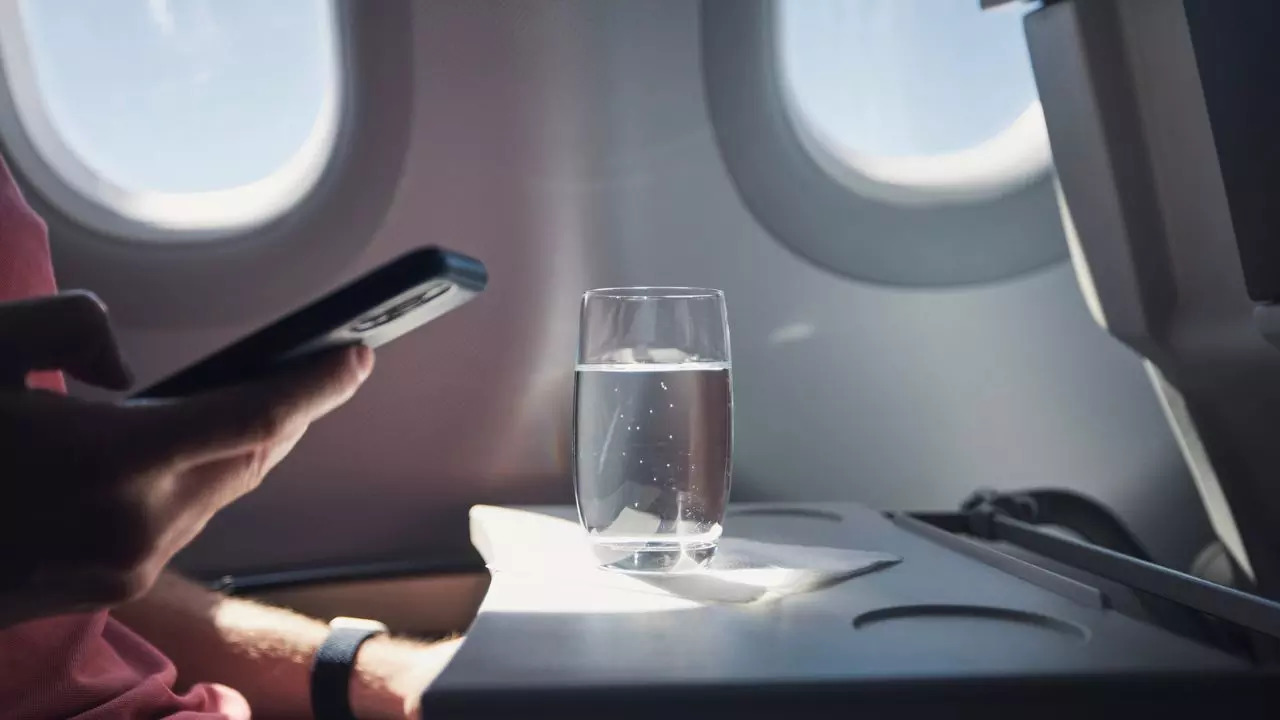
This is the correct amount of water you should consume during your flight. (Image: iStock)
Have you ever had that feeling of sitting on a plane all excited and looking forward to the adventure that awaits you? However, when you land, you are completely exhausted and feeling very drained. Have you ever wondered why this happens and what you can do to ensure that you land with the same energy as when you left? Experts recommend drinking more and more water. Hydration is the key.
Dr. Mohsen Soofian, a family medicine specialist and physician specializing in integrative healthcare at the Hortman Clinic in Dubai, told CN Traveller: “During a long-haul flight of six hours or more, around two liters of water can be lost, simply by breathing and through the skin. The air in the cabin is also 20 percent drier than on the ground, further contributing to moisture loss from the body.”
But how much water is the right amount? Let’s find out.
Dr. Mohsen explains that drinking at least 240 ml of water every hour will help replenish lost moisture. If possible, you can also carry a refillable bottle and ask the crew to refill it constantly. Here are a few more tips you can follow to stay hydrated during a flight.
Avoid excess salt in your food
Avoid hidden salt in in-flight meals. Too much sodium can dehydrate the body. Our taste receptors can be 40% less sensitive during a flight, so airlines compensate by adding more seasoning and salt. Be sure to manage the impact of excess sodium by drinking more water.
Say no to alcohol
Drinking alcohol dehydrates the body and also activates the kidneys, causing us to go to the bathroom more frequently, making matters worse. Recent studies have highlighted the increased vulnerability of passengers to the effects of alcohol at high altitudes. Researchers found that even in young, healthy people, consuming alcohol before bed at the lower air pressure of an airplane cabin can significantly increase heart rate and reduce blood oxygen levels. The combination of alcohol and the lower air pressure of a cabin can put a strain on the cardiovascular system and lead to prolonged periods of low oxygen levels.
Electrolytes to the rescue
Before your flight, try drinking some freshly squeezed juices containing vitamin C, ginger, or consume coconut water – the main goal here is to increase your electrolyte intake.
Disclaimer:
The information contained in this post is for general information purposes only. We make no representations or warranties of any kind, express or implied, about the completeness, accuracy, reliability, suitability or availability with respect to the website or the information, products, services, or related graphics contained on the post for any purpose.
We respect the intellectual property rights of content creators. If you are the owner of any material featured on our website and have concerns about its use, please contact us. We are committed to addressing any copyright issues promptly and will remove any material within 2 days of receiving a request from the rightful owner.
